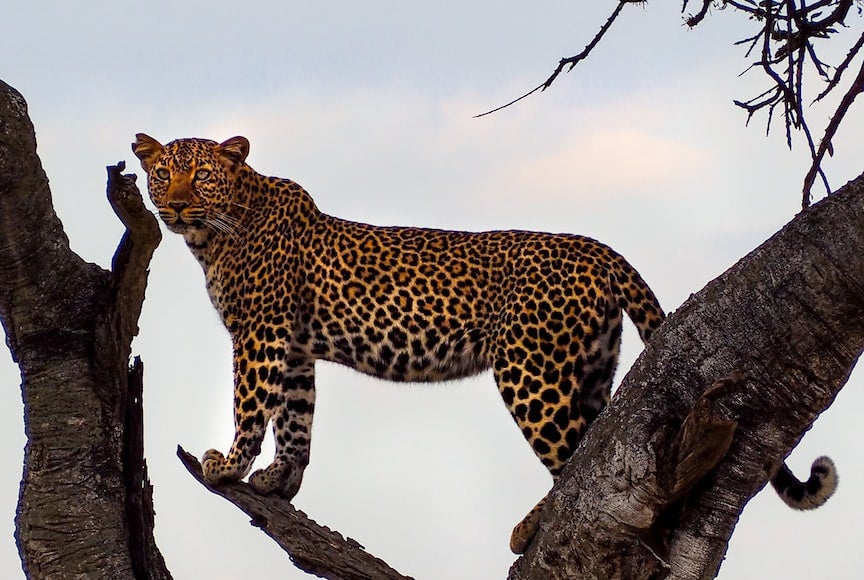Botswana to maximise economic contribution of its wildlife
Wildlife is a value asset to African economies, creating jobs and revenue while protecting important flora and fauna

Your support helps us to tell the story
From reproductive rights to climate change to Big Tech, The Independent is on the ground when the story is developing. Whether it's investigating the financials of Elon Musk's pro-Trump PAC or producing our latest documentary, 'The A Word', which shines a light on the American women fighting for reproductive rights, we know how important it is to parse out the facts from the messaging.
At such a critical moment in US history, we need reporters on the ground. Your donation allows us to keep sending journalists to speak to both sides of the story.
The Independent is trusted by Americans across the entire political spectrum. And unlike many other quality news outlets, we choose not to lock Americans out of our reporting and analysis with paywalls. We believe quality journalism should be available to everyone, paid for by those who can afford it.
Your support makes all the difference.By Keletso Thobega for Botswana Guardian
Greater investments in the wildlife economy would go a long way in bolstering Botswana’s GDP, and improving the quality of livelihoods among people in both rural and urban communities, new research recommends.
Wildlife is a valuable asset to African economies, according to the recently-released report on Wildlife Economy Research Project, which aims to promote an inclusive, growing and sustainable wildlife economy in Africa states.
The report, from the African Leadership University’s School of Wildlife Conservation, presents findings from the World Bank that indicated that the Sub-Saharan Africa wildlife GDP, grew at 2.3 percent from 2019, at a consistent growth of - 20 percent of GDP in tourism.
The report, however, notes that the recurring challenge is that many African cities lack the adequate infrastructure to support sustainable protection of biodiversity, and the growth of the wildlife economy, adding that Africa would highly benefit from reformed regulations in tourism and community ecotourism.
The wildlife economy contributes to employment creation and revenue generation, as well as improving livelihoods diversification and protecting flora and fauna ecosystems.
The findings from the report indicate that wildlife resources in Botswana can contribute positively to national income as the sector is economically efficient, and contributes to the country’s economic development through job creation and revenue generation.
Director in the Department of Wildlife and National Parks, Kabelo Senyatso has indicated that wildlife needs to be developed in ways that maximise their economic contributions hence the various community programmes and interventions geared at capacitating locals and including them in the local economy.
In general, non-consumptive tourism on high-quality wildlife land will give the greatest economic returns, and should get priority. Safari hunting and community based wildlife use should also be given priority for investment.
The report defines wildlife economy as a means to use wildlife, both plants and animals, as an economic asset to create value that aligns with conservation objectives and deliver sustainable growth and economic development. It further notes that the tourism sector contributed approximately US$ 120 billion to the global economy, which is estimated to be growing at an average of 10 percent annually.
The Wildlife Economy Research Project report additionally cited the Intergovernmental Science Policy Platform on Biodiversity and Ecosystems Service (IPBES) indicators from earlier this year, which highlights that current declines and loss of biodiversity is reducing nature’s contribution to people in Africa. This loss affects their daily lives and also negatively impacts targets for sustainable social and economic development.
Investment in conserving living natural resources is essential to ensure development that is sustainable.
The research process carried out also highlights data gaps and encourages the collection of data related to wildlife economies.
This article is reproduced here as part of the African Conservation Journalism Programme, funded in Angola, Botswana, Mozambique, and Zimbabwe by USAID’s VukaNow: Activity. Implemented by the international conservation organization Space for Giants, it aims to expand the reach of conservation and environmental journalism in Africa, and bring more African voices into the international conservation debate. Written articles from the Mozambican and Angolan cohorts are translated from Portuguese. Broadcast stories remain in the original language.
Read the original story here:
Join our commenting forum
Join thought-provoking conversations, follow other Independent readers and see their replies
Comments